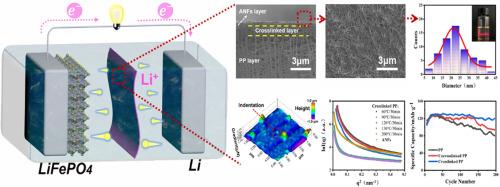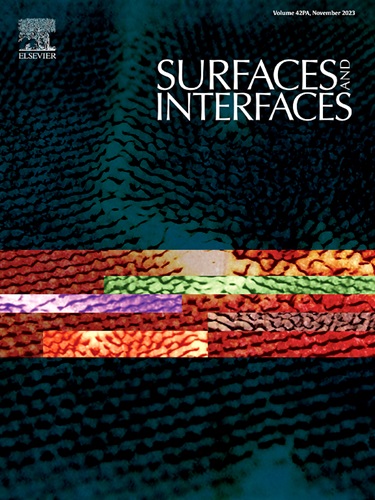The long-lasting maintenance of the pore structure achieves the stability of lithium metal batteries
Abstract
The separator is considered critical to the safety and performance of lithium metal batteries (LMBs), however, the separator structure fails under high temperature conditions due to damage resulting in decreased mechanical strength, which causes short-circuiting of the battery. This paper describes a novel process to prepare stable and uniform dispersions of aramid nanofibers (ANFs) by bottom-up low-temperature polymerization, and then crosslink the ANFs with N2 plasma-treated polypropylene (PP) separator through capping isocyanate crosslinkers. The composite separator not only has excellent mechanical properties with hardness and modulus of elasticity up to 0.35 and 2.26 GPa, which is three times higher than the PP separator, but also has high-temperature thermal stability, the size maintenance rate reaches 99.8 % at 200 °C. Meanwhile, real-time monitoring of the pore size at different temperatures by synchrotron radiation small-angle X-ray scattering (SR-SAXS) showed that the pore radius of gyration was kept at 8.81 nm and the size change rate was only 22.8 % at 200 °C, which demonstrated that the composite separator had an outstanding ability to maintain the pore structure to ensure the stability of the ionic transport channel. Therefore, the crosslinked composite separator has greater potential for improving the performance and safety of LMBs in extreme high-temperature environments.


 求助内容:
求助内容: 应助结果提醒方式:
应助结果提醒方式:


